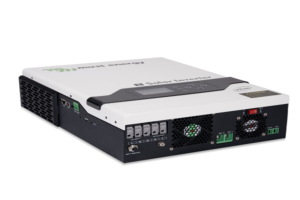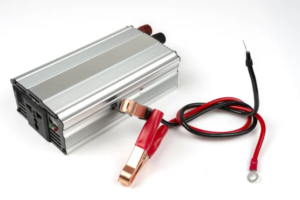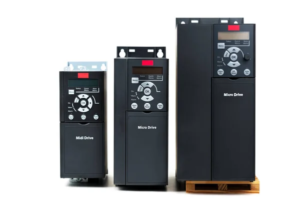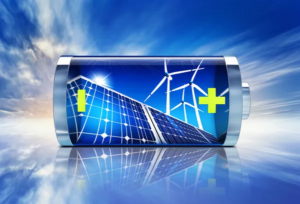Inverters are the unsung heroes of the power world. Their main function is to transform DC (direct current) energy from PV modules or solar panels, and batteries into usable AC (alternating current) power to power our electronic appliances and electrical machines. However, not all inverters are created equal. In this article, we will explore three types of inverters: transformer-based, transformerless, and hybrid. We’ll delve into their unique features, advantages, and disadvantages, shedding light on crucial concepts like harmonic distortion, power factor, and grid-tie capabilities. Join us on this illuminating journey and discover how Prime Radiant Energy Solutions Ltd. can provide the perfect inverter solution for your specific needs.
- Transformer-Based Inverters: These inverters feature an internal transformer that provides galvanic isolation between the DC and AC circuits. They excel in handling inductive loads, offering robust surge protection and superior voltage regulation. However, they tend to be bulkier, heavier, and costlier and have a reduced efficiency due to power loss in the transformer compared to other inverter types.
- Transformerless Inverters: Transformerless as the name implies are inverters without a transformer in them. They are non-isolated, inverters and are recently gaining popularity for their compact size, high efficiency, and cost-effectiveness. They are ideal for noninductive loads and applications where space is limited. However, they may have limited surge protection capabilities and compatibility issues with certain inductive loads.
- Hybrid Inverters: Hybrid inverters combine the best of both inverter types. A hybrid inverter could be a transformer-based or transformerless inverter. What it means is that, in addition to having the capacity to charge batteries with AC power, it also can charge batteries with DC power from the solar panels. It uses a technology called Maximum Power Point Tracking (MPPT) to achieve this. They offer galvanic isolation, compatibility with inductive loads, and high efficiency. Hybrid inverters are particularly suited for systems with battery storage, enabling seamless switching between grid power, solar energy, and battery backup.
In addition, all the inverter types mentioned above are Pure Sine Wave (PSW) inverters which are expensive compared to MSW and very good for a wide range of applications.

Nevertheless, there are inverters that are Modified Sine Wave (MSW) which are very cost-effective and good for small power applications

Understanding Key Concepts
- Harmonic Distortion: This term refers to the distortion of the AC waveform caused by the presence of harmonic frequencies. Low harmonic distortion ensures a clean and stable power supply, reducing the risk of equipment damage and electrical noise interference.
- Power Factor: The power factor measures the efficiency of electrical power usage. A high power factor indicates efficient power consumption, reducing energy wastage and optimizing electricity usage.
- Grid Tie Capabilities: Grid tie inverters allow for seamless integration of solar power systems with the electrical grid. They enable the transfer of excess generated power back to the grid, ensuring efficient use and potential financial benefits through net metering programs.
Choosing the Perfect Inverter
Selecting the suitable inverter depends on several factors such as:
- Load Types. Consider the mix of inductive and noninductive loads in your system. Transformer-based inverters excel with inductive loads, while transformerless and hybrid inverters are suitable for noninductive loads.
- Application. Determine if the inverter is for residential, commercial, or industrial use. Hybrid inverters are versatile and can adapt to various applications, while transformerless inverters are commonly used in residential and small commercial setups.
- Efficiency and Cost. Evaluate the efficiency ratings and cost-effectiveness of the inverters. Transformerless and hybrid inverters often offer higher efficiency levels, resulting in long-term cost savings.
At Prime Radiant Energy Solutions Ltd., we are dedicated to providing customized inverter solutions that meet your unique requirements. With our expertise in renewable energy and deep understanding of inverter technologies, we ensure reliable, efficient, and future-proof power systems.
Send us a mail at service@primeradiantenergy.com to make inquiries about our range of solar energy solutions, including top-quality inverters, and take the first step towards a sustainable and reliable energy future. Feel free to contact us here. Follow us on Linkedln here and Facebook here





